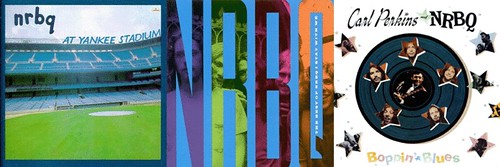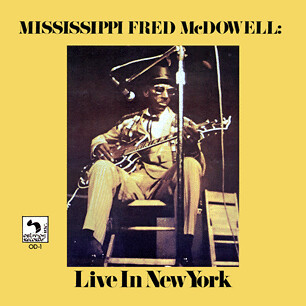
Geez, I love
this band.
They're smart,
fun,
rockin',
goofy,
sophisticated,
modern,
retro,
pop-y,
weird, somehow all at once. When I've been attracted to an artist for eclecticism, eventually I get bored because there's often no center, no core. These guys belie that lack;
NRBQ know who they are, and we do to. Somehow. I don't know how they've done it.
Sending you
Johnny Cash's Get Rhythm made me think of NRBQ all over again. They're the first ones I heard play it (on my favorite
At Yankee Stadium, their 6th of over 20+ albums), before we knew what 'roots' music was. Originally, with their first LP in '69, I thought it was cute they'd cover
Sun Ra's Rocket No. 9 and put lyrics to
Carla Bley's
Ida Lupino, but other than that never paid them nevermind. And I thought it was curious they backed up Carl Perkins on
Boppin' the Blues, and hilarious that on the same LP they wrote and recorded a homage to the Three Stooges,
Dr.Howard, Dr.Fine, Dr.Howard. I thought
Scraps had a neat album cover and I loved the opening track,
Howard Johnson's Got His Hojo Working, a reworking of the old Muddy blues riff. By this point I guess they were a funny, groovy curiosity. Then I saw them at New York's Bottom Line, and I got the dose that clubgoers up and down the East have been talking about for 35 years. Sure they've got one of the best, funniest, liveliest club acts you could imagine, but I've never seen a band go from rock to rockabilly to 40s pop to avant garde jazz to who knows and then back again. These guys could play the piss out of anything --anything!-- play it well, and have a great time doing it.
None of them sing all that well, but their voices are perfect for the songs they write, and for the way they play.
Joey Spampinato's bass holds the band down, and he writes
light, nice songs that always make me feel good (and he was the bass player on the Chuck Berry tribute movie,
Hail! Hail! Rock 'N' Roll, and he was married to country legend
Skeeter Davis).
Al Anderson's guitar has a chunky rollicking sound, he's got a slightly ripped voice (he finally quit the band after decades, relocated to Nashville, and I hear he's a successful songwriter and producer).
And then there's Terry.
Terry Adams plays piano and clavinet. You can't tell if he plays like
Professor Longhair,
Cecil Taylor,
Little Richard, or
Thelonious Monk. He mainly plays like himself. His voice is reedy, a little thin, but he can sing his power pop, or any of the other wildly broad selection of songs he brings to the band. He's a complete madman, as anyone who's seen him play can tell you, and I always felt he was entirely bent, stoned, looney, and somehow, vulnerable and hurt.
(I was the road manager and soundman for
Carla Bley when she first took her
big band on the road in 1977. Imagine my surprise when I found out Terry Adams was the pianist [Carla played organ]. He was a great guy, soft spoken, but he brought incredible musicianship to the band, an exhuberant and carefree showmanship to the stage.)
I wanted to play you a song, in two tracks, that shows a lot of what Terry (and NRBQ) was about. I always liked
Yes, Yes, Yes, from 1978. It was a pop-y type, ballad, but I always wondered how he could use such a Monk-ish, broken melody line, sing to it, harmonize to it. Then in 1995 comes Terry's only solo album,
Terrible, an instrumental, jazz album on the avant label New World, featuring trombonist Roswell Rudd (another alumni of Carla's first touring band), and, lo and behold, a track called
Yes, Yes, Yes. Yes, it's the same song, done like Monk would have done it. Yikes.
So, there it is. Think I like these guys? Look, they didn't make it for a reason. Their albums are often a mess, with a lot of ill considered, ill conceived tracks. They really can't sing, even though I love their voices. And I've heard excruciating stories of the the things they've done to undermine any possible success. But, hey, that's their business. The
Rhino collection sort of starts to capture it,
the live records give you a taste, these tracks here are kind of cool. But who knows? Will you like them? Don't know.
NRBQ >Get RhythmNRBQ >Green Lights
NRBQ >I Love Her, She Loves Me
NRBQ >It Comes to Me Naturally
NRBQ >Rocket No. 9
NRBQ >Dr Howard, Dr Fine, Dr Howard
NRBQ >Yes, Yes Yes
Terry Adams >Yes, Yes, Yes


